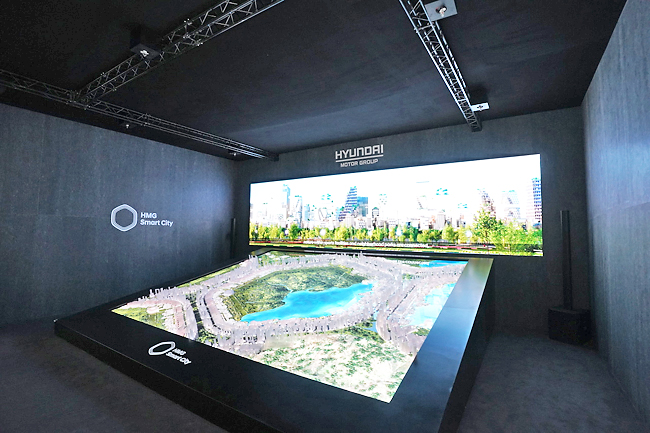THE KOREA HERALD – Hyundai Motor Group on Monday unveiled its vision for smart city at the World Cities Summit in Singapore, with an aim to offer a blueprint for smart mobility solutions that revitalise urban communities.
During a panel discussion at the biannual summit, the automaker’s President and Chief Innovation Officer Chi Young-cho offered a detailed look into the company’s vision for human-focussed city design through its HMG Smart City concept. The company first unveiled such vision for future cities and supporting smart mobility solutions at CES 2020.
The HMG Smart City concept, which was inspired by a honeycomb pattern, is a hexagonal-shaped city with a human-centred surface layer and function-centred underground layer. On the surface layer, parks and a forest sit at the centre of the city and the buildings are located around it, effectively minimising the gross area developed by humankind.
Chi said such model illustrates how sustainable and smart mobility solutions will empower the operation of smart cities, in line with the group’s smart city philosophy to create a human-centred city that coexists with nature and embraces the future.
“The model will serve as a guideline for developing smart mobility solutions that support smart cities around the world while revitalizing their urban communities,” Chi added.

According to the carmaker’s future city concept, the city will be connected through road infrastructure built underground. Parcels and delivery goods will be transported underground via autonomous mobility to each region’s automated logistics hub, where autonomous robots will make the final delivery.
People will travel between cities by the advanced air mobility (AAM) and these vehicles will land and take off from Hub 2.0 towers, which combine residential and office areas with AAM ports at the top of the building.
The city centre will feature recreational forests, parks and a reservoir to provide water for the city. To ensure carbon neutrality, the city’s primary power source will be hydrogen, distributed through the smart grid pipelines to power buildings through hydrogen fuel cell generators.
To do so, the company said it will work with governments around the world.
Earlier this year, Hyundai Motor Group signed an agreement with Singapore’s government agency JTC on a transport modelling project to enhance logistics efficiency using autonomous driving, electric vehicles, AI, and big data.



